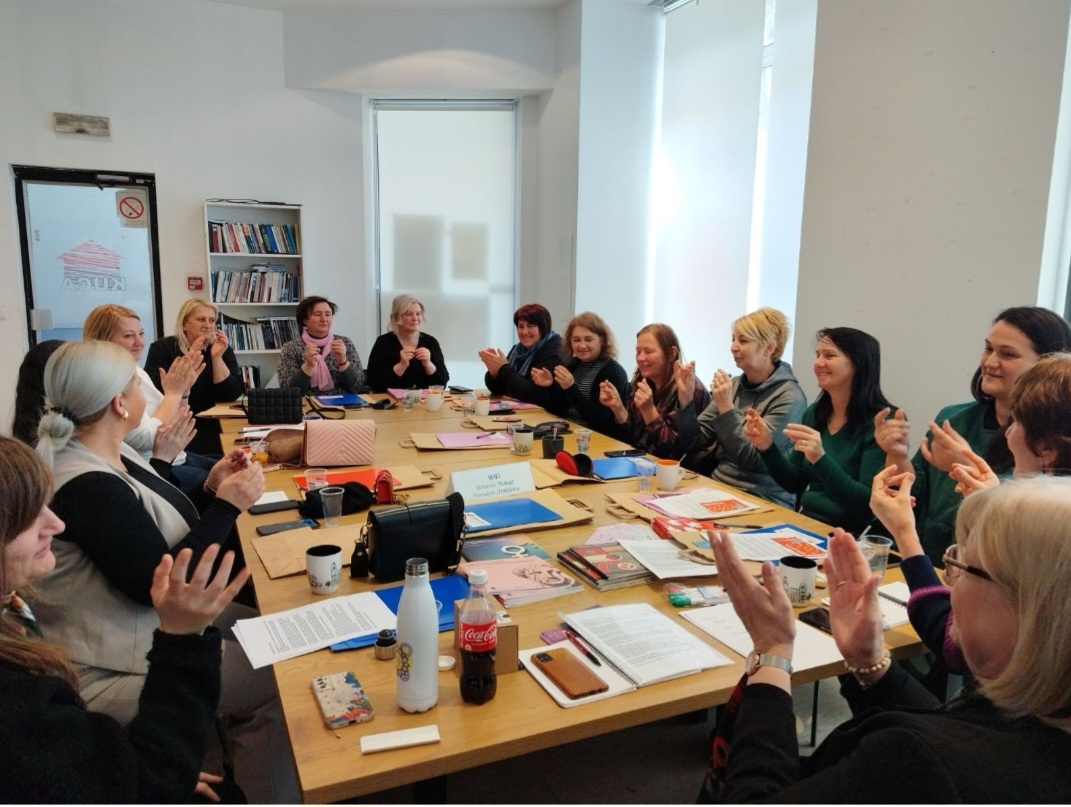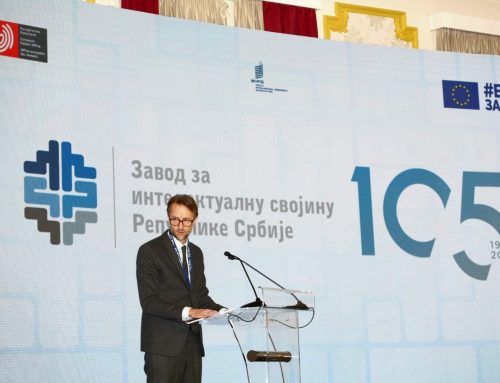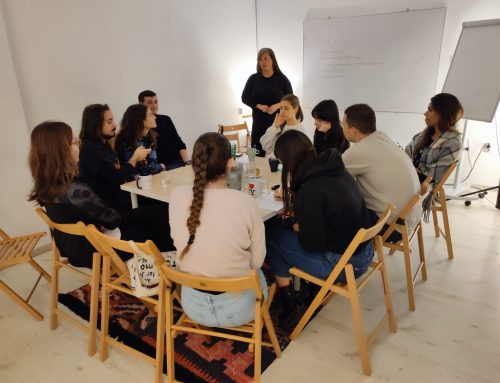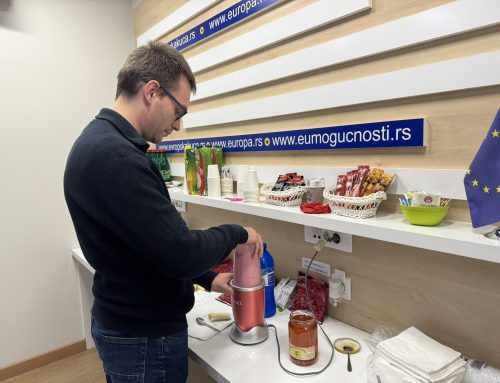Workshop on Women’s Friendship, Rural Women of Southwestern Serbia. Belgrade, February 2025.
In Serbia in 2024, more than 20,000 women were subjected to domestic violence. Only a fraction of them have access to safe houses — there are just 11 in the entire country, along with one additional shelter for victims of human trafficking. These numbers turn the shelter network into a kind of invisible infrastructure, one that often marks the difference between living in fear and having a chance at a new beginning.
The situation is even more challenging for victims of domestic violence in rural areas. Protection mechanisms for women in these parts of the country are far weaker, and the risks of repeated violence are far less visible.
This year’s Dobrila Award laureate, Radmila Gujaničić, has, over the past 30 years, become a key figure in transforming the lives of women in rural communities. Through her work, she has strengthened the role of these women in the local economy, as well as their educational, social, and political awareness.
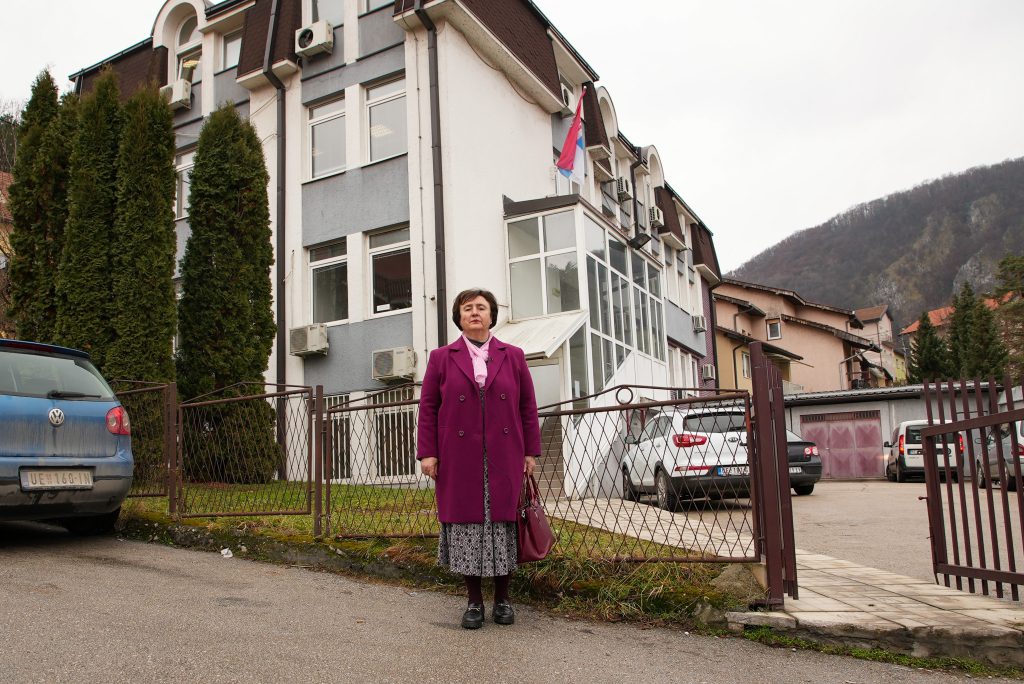
Radmila Gujaničić
She has devoted much of her work to combating gender-based violence. By introducing new legal mechanisms — such as a special registry for cases involving women who are victims of violence — she helped create conditions for greater protection and fairness for women.
Radmila established a regional SOS hotline service for women experiencing violence. Through long-term cooperation with institutions such as local courts and human rights organizations, she set standards for the protection of women from violence — a contribution essential to improving the status of women in society.
“The year 2013 proved to be a turning point in this process, because that was when the Istanbul Convention was ratified, and when the Women’s Councilor Network was formed in Užice (Western Serbia), modeled after the Women’s Parliamentary Network. It was a major step forward in connecting and empowering women within local governments. Together with councilwomen from Užice and other municipalities in the Zlatibor District, we launched an initiative to establish an SOS hotline and drew attention to the lack of accommodation facilities for women experiencing violence, given that at the time the entire district had only one safe house — in Priboj, with just eight beds,” Radmila explains.
Despite numerous forms of resistance and administrative obstacles, on August 31, 2015, the SOS hotline service was established, based on feminist principles of work.
“The first call came on September 29 of the same year, from a neighboring municipality, which gave us a strong incentive to keep working on regionalizing support services for women experiencing violence. The idea was for several local governments to jointly co-finance the service so that as many women as possible could access help and support, with operators on duty 12 hours a day on all working days,” she said.

Panel Discussion Dedicated to the Adoption of the Istanbul Convention
Radmila served as coordinator of the SOS hotline until 2018. The hotline continues to operate without interruption to this day, supported financially by local governments and donors.
“This process was long, demanding, and filled with numerous challenges. Still, my persistence, consistency, and belief in the importance of combating violence against women led to visible and lasting results,” Radmila emphasized.
She added that, together with councilwomen from the Zlatibor District, she also initiated an advocacy process for establishing a regional safe house — an initiative she consistently championed until her retirement in 2023.
Radmila Gujaničić continues to actively support women’s organizations and rural women by helping them secure assistance in project writing and by connecting them to relevant institutions that provide financial support. In addition to the Dobrila Award, she received the Victimology Society of Serbia’s Annual Award for Advancing Victims’ Rights on November 25, 2022, in recognition of her contribution to improving the rights of victims.
The Dobrila Award, presented by the Delegation of the European Union to Serbia on March 8, 2024, is awarded annually to individuals, organizations, and institutions for their contributions to defining and supporting emancipatory practices within communities identified as marginalized or minority. The award is dedicated to local and communal initiatives that promote intergenerational exchange of knowledge, skills, and values, as well as to individuals whose exceptional dedication and passion have driven social change and paved the way for future generations in new battles for equality. The award is presented each year as part of the celebration of International Women’s Day.

